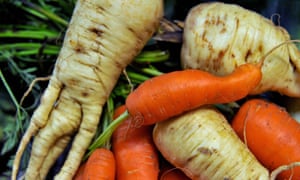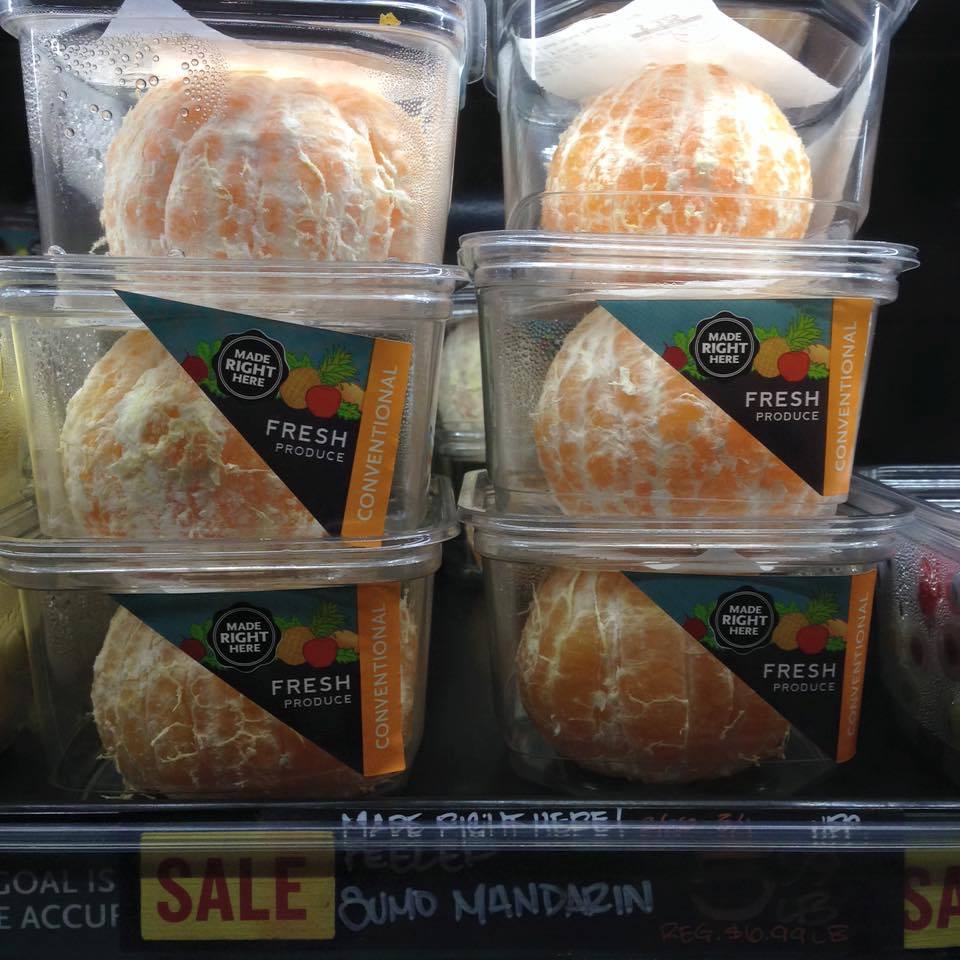Doggy bags to pig feed: 10 things we learned about
food waste
A panel
of experts joined us online to talk about preventing and getting value from
food waste. Here’s what we learned

Overproduction of food is made worse by supermarkets
applying cosmetic standards to produce. Photograph: Alistair Scot/Alamy
Friday 15 April 201611.46 EDTLast modified on Friday 15
April 201612.03 EDT
1. We’re wasting a lot
In the UK alone, 15m tonnes of food is
lost or wasted each year, with consumers chucking away 4.2m tonnes of edible
food. The foods most commonly found in British bins are bread, vegetables,
fruit and milk. If food waste sent an annual bill, the average household would
be looking at £470, or £700 for
families with children.
2.
We’re beginning to realise it’s not okay
With the help of high profile chefs including
Jamie Oliver and Hugh Fearnley-Whittingstall, food waste is climbing up the
public agenda. Along with levels of sugar and salt, waste was the most
frequently mentioned consumer concern last year, according (pdf) to the
Food Standards Agency.
3.
There’s a food waste pyramid
If the food is edible, the best use for it is
to sell it to humans or redistribute it through charities. If it’s not fit for
human consumption, the next best option is feeding it to livestock, like pigs.
This is currently banned under EU rules
but could reduce the need for typical animal feed crops such as soya, which is linked to deforestation. If
the food isn’t fit for humans or animals, the next best solution is anaerobic
digestion, which converts the waste into energy.

Hugh Fearnley-Whittingstall campaigning to get food waste
back on the menu for pigs in the UK in 2013. Photograph: Rex
If food waste collection and processing
improved, we could also get additional value from waste, like vitamin C from
orange peel and omega-3 from fish.
5.
Packaging isn’t always the enemy
Whole Foods recently admitted to
making a “mistake” and pulled peeled oranges in plastic containers from its
shelves. This follows the banana scandal of 2012, when German owned supermarket
Billa felt the wrath of customers and the internet for stocking the fruit peeled and wrapped in plastic.
While some food packaging is unnecessary (ridiculously unnecessary in these
cases), packaging also protects food in transit, which reduces waste.
6. Tech
could stop us needlessly throwing food out
Another criticism of packaging is that it
applies generic and misleading expiry dates to food. Bump Mark, a responsive expiry label that indicates
when food actually goes bad, could be the answer.
Technology can also help people find homes for
surplus food they have. Online platform Neighbourly, for example,
helps connect businesses with charities and has distributed more than 50 tonnes
of food, while the Olio app connects neighbours with each
other and local shops to share food.
7. We
need a doggy bag revolution
Sixteen restaurants participating in Zero
Waste Scotland’s Good to Go doggy bag
scheme reported an average 42% reduction in food waste and 92% of diners said
they ate the leftovers at home. While we overwhelmingly want to be offered
doggy bags, two fifths of us are currently too embarrassed to ask for one.

The Good to Go project provided restaurants with take-home
boxes (or doggy bags) as part of their service. Photograph: Action Press/Rex
8.
We’re only measuring farm waste now
While consumer and retail waste has taken the
spotlight, farms have been overlooked. As a result, nobody knows how much waste
is happening at the farm level but it’s estimated to be “colossal”, according
to Martin Bowman, campaign and media coordinator at Stop
the Rot. The Courtauld Commitment from
the UK’s waste and resources action programme intends to start measuring farm
waste by 2018.
9.
Supermarkets should expand wonky veg ranges
Overproduction of food is often tied to
unexpected weather patterns and waste is made worse by supermarkets cancelling
orders and applying cosmetic standards to produce. There are signs of
improvement. Tesco, for example, has committed to buying all of the bananas produced by
just under half of the plantations from which it sources. The introduction of
“wonky” fruit and veg lines will also help more fruit make it to market, but
ranges will need to expand to have a real impact.

In recent months, Tesco, Asda and Morrisons have
introduced wonky veg lines. Photograph: Mychele Daniau/AFP/Getty Images
10.
Indirect suppliers need better protection
Many farmers don’t supply directly to
supermarkets but via middlemen. This exempts them from protection from unfair
trading practices such as last minute order cancellations which lead to waste.
Extending the remit of the groceries code adjudicator (which
oversees relationships between supermarkets and their suppliers in the UK) to
cover indirect suppliers would help address this.

No comments:
Post a Comment